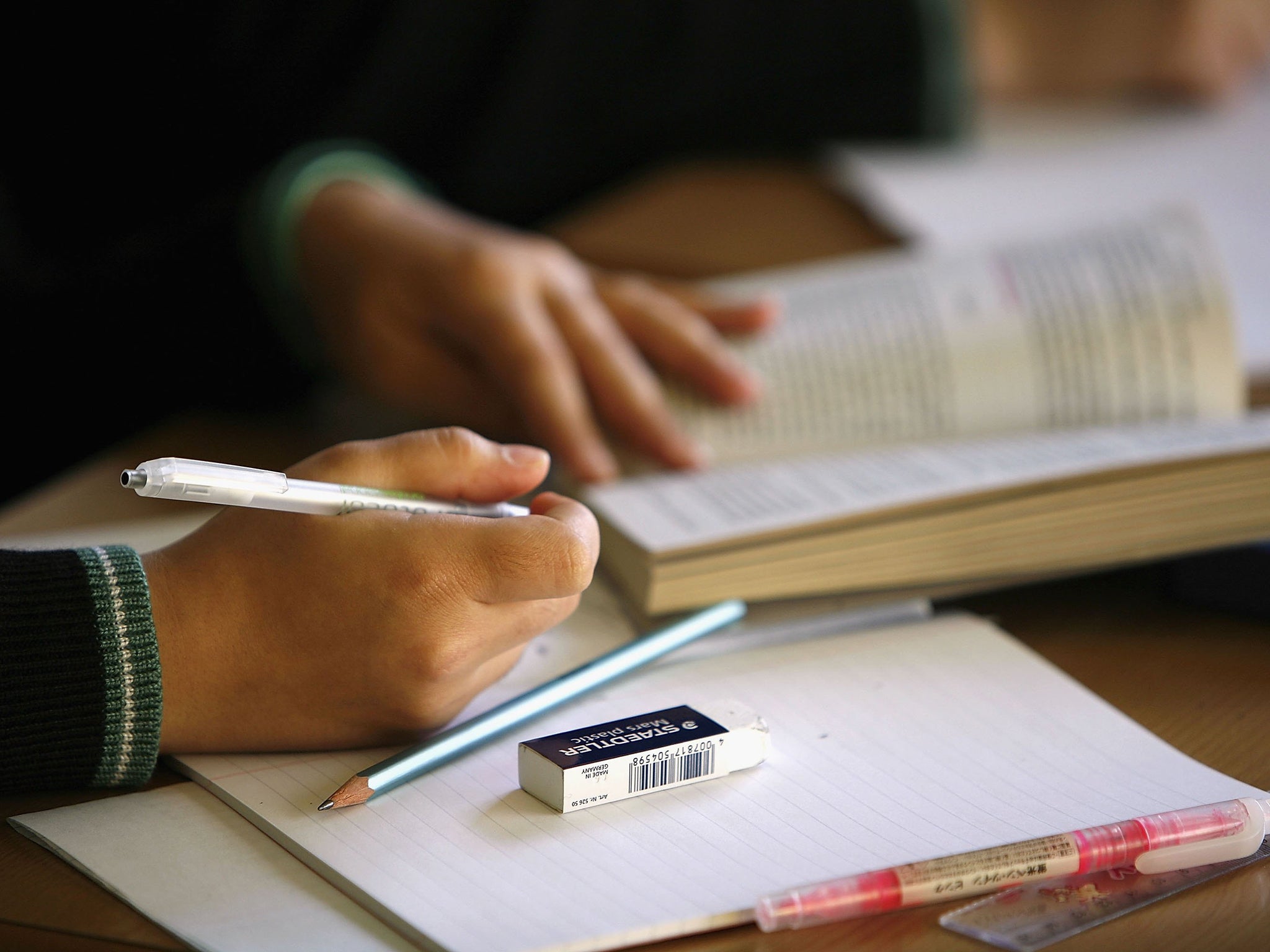Exams aren’t getting any harder to take – but the pressure on young students is
With students taking to social media platforms to share their despair, teachers and the government should be investigating how to tackle this post examination pressure and provide support for students

Your support helps us to tell the story
From reproductive rights to climate change to Big Tech, The Independent is on the ground when the story is developing. Whether it's investigating the financials of Elon Musk's pro-Trump PAC or producing our latest documentary, 'The A Word', which shines a light on the American women fighting for reproductive rights, we know how important it is to parse out the facts from the messaging.
At such a critical moment in US history, we need reporters on the ground. Your donation allows us to keep sending journalists to speak to both sides of the story.
The Independent is trusted by Americans across the entire political spectrum. And unlike many other quality news outlets, we choose not to lock Americans out of our reporting and analysis with paywalls. We believe quality journalism should be available to everyone, paid for by those who can afford it.
Your support makes all the difference.Examinations are stressful, and can be extremely challenging – this is undeniable. I always found that the most hair-raising part of the examination season was the space of time following the exam when everyone gathered in the common room and compared their answers.
Now this post-exam interrogation is carried out at a national level through Twitter, Facebook and other forms of social media. Thousands of students converge on the internet and compare their answers, discuss how hard they found the exam and despair in union about how they’re definitely not getting into University.
It doesn’t help that news outlets are posting compilations of these tweets. Yes, we have been conducting this low level dissection of exams for decades within the school grounds, but to push it onto a national level can only cause more stress and anxiety. Some of the tweets are extremely witty, but behind that tweet is a student who has just taken an exam, and is concerned about an outcome that will affect their future.
Students are utilising social media to complain about how difficult their exams were, and how this is the fault of examination boards, the biology rat and The Secretary of State for Education. Newsflash: every adult who has sat a similar exam in the past will state that they felt exactly the same when they were teenagers. This is nothing new; the fact that this exam induced anxiety is being amplified by social media makes it feel like students are receiving a comparatively raw deal.
I saw girls in my school (myself included) come out of exams in floods of tears, declaring like Hamlet – maybe a hangover from the GCSE text they’d just been studying – that their life was no longer worth living and then scored 90 per cent when results day came around. Our feelings post-exam do not always correlate with our attainment. It is impossible to predict how you’ve done, so why are students projecting their own anxieties to a mass audience?
I suppose it could be seen as a group therapy, but considering examination stress has been so well documented within the news, with parents threatening to boycott KS2 examinations and students complaining that their exams are more difficult than they were prepared for, we should really be investigating how to tackle this post examination pressure and provide support for students.
More support could be provided by schools; once exams are over you’re effectively banned from the premises until results day, when it’s not uncommon to be greeted with a hefty library fine in addition to the dreaded exam board envelope. There is a lot of talk of pre-exam support being provided, but who can students turn to when the exams are over?
Sky News revealed that one in five parents who tried to access care for their child through the Child and Adolescent Mental Health Services (CAMHS) were turned away. More teenagers than ever are admitting that they are struggling with mental health issues including depression, eating disorders and anxiety.
This, combined with post-exam feelings of failure, is a recipe for disaster, and by not providing adequate support, exam-takers are being put at a higher risk of developing mental health problems or worsening existing issues. It is soul destroying when you feel as though an exam has gone terribly wrong. That combined that with clinical depression, and that individual could spiral into quite a dark place.
The government and schools need to look into providing more support for students before, during and after the examination period to ensure that they have a suitable outlet for their worries, and can be taught stress relief techniques. Pastoral care and educational achievement go hand in hand in the school system, but more emphasis needs to be put on maintaining student’s mental health so they are equipped to achieve.
Join our commenting forum
Join thought-provoking conversations, follow other Independent readers and see their replies
Comments